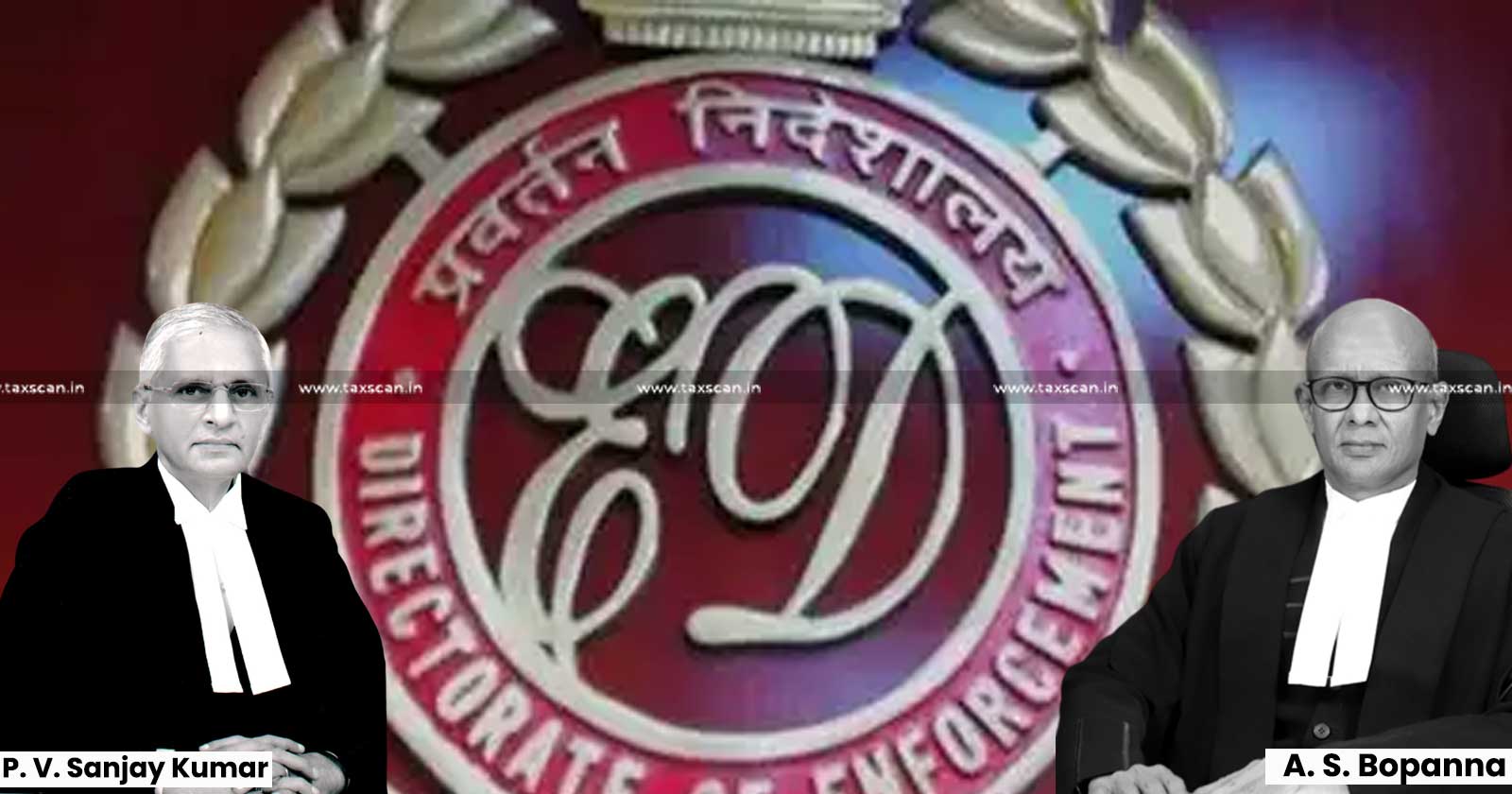Be Fair and not Vindictive: SC slams ED, grants Bail to M3M Directors in PMLA case [Read Order]

Be Fair – not Vindictive-SC slams ED-grants Bail – M3M Directors – PMLA case-TAXSCAN
Be Fair – not Vindictive-SC slams ED-grants Bail – M3M Directors – PMLA case-TAXSCAN
“Being a premier investigating agency, charged with the onerous responsibility of curbing the debilitating economic offence of money laundering in our country, every action of the ED in the course of such exercise is expected to be transparent, above board and conforming to pristine standards of fair play in action.” -Justice AS Bopana and Justice Sanjay Kumar
Expressing its view against the Enforcement Directorate (ED), the Supreme Court of India commented that the actions of ED should be fair and not vindictive thereby granting bail to M3M Directors Pankaj Bansal and Basant Bansal in a Prevention of Money Laundering Act, 2003 (PMLA) case.
The appellants were arrested on charges of money laundering and bribing a former CBI judge in Gurugram. By the ED.
According to Saket Singh, Deputy Director, Directorate of Enforcement, during the investigation, both of them were found to be actively involved in money laundering and deliberately attempted to withhold information, that was in their exclusive knowledge, which was crucial to establish their roles and to take the money laundering investigation to its logical end. He asserted that they adopted an attitude of non-cooperation during the investigation and the fact that they had bribed the ED Judge to take benefit in the existing proceedings showed that they were capable of influencing witnesses/authorities involved in the case.
A Two-Judge Bench comprising Justice AS Bopanna and Justice Sanjay Kumar observed that “The ED, mantled with far-reaching powers under the stringent Act of 2002, is not expected to be vindictive in its conduct and must be seen to be acting with utmost probity and with the highest degree of dispassion and fairness. In the case on hand, the facts demonstrate that the ED failed to discharge its functions and exercise its powers as per these parameters.”
The Court further went on to add that “We may also note that the failure of the appellants to respond to the questions put to them by the ED would not be sufficient in itself for the Investigating Officer to opine that they were liable to be arrested under Section 19, as that provision specifically requires him to find reason to believe that they were guilty of an offence under the Act of 2002. Mere non-cooperation of a witness in response to the summons issued under Section 50 of the Act of 2002 would not be enough to render him/her liable to be arrested under Section 19.”
Granting bail to the M3M Directors, the Apex Court remarked that “On the above analysis, to give true meaning and purpose to the constitutional and the statutory mandate of Section 19(1) of the Act of 2002 of informing the arrested person of the grounds of arrest, we hold that it would be necessary, henceforth, that a copy of such written grounds of arrest is furnished to the arrested person as a matter of course and without exception.”
To Read the full text of the Order CLICK HERE
Support our journalism by subscribing to Taxscan premium. Follow us on Telegram for quick updates


